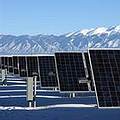 美國參議院財經委員會主席包可士(Max Baucus)18日表示,「俗話說,『不到最後一刻,很多事不會有成果。』如果上帝允許,那麼隨著國會議程接近最後一刻,很多事情也快要有成果了。」
美國參議院財經委員會主席包可士(Max Baucus)18日表示,「俗話說,『不到最後一刻,很多事不會有成果。』如果上帝允許,那麼隨著國會議程接近最後一刻,很多事情也快要有成果了。」
包克斯議員預期本週能迅速產生的成果之一,就是在國會進入選舉休會期以前,通過再生能源稅賦抵減(tax credits)的延長案,受影響的包括民宅自用與商業太陽能計畫。
接下來,太陽能業者希望法案能飛快交付眾議院,並且無須經過修改,儘速在9月26日休會議事槌敲響之前通過,以遞交布希總統簽字。假如以上的急速立法未能順利發生,現有的再生能源減稅優惠將在年底失效。
雖然延長稅賦抵減的法案已經8次闖關失敗,兩黨參議院領袖似乎終於在第9次達成妥協。在這項「包可士-格拉斯利2008能源改進暨延長法案」(H.R. 6049)中,將延長清淨能源的租稅獎勵,並且完全以租稅收入支付。
太陽能投資的稅賦抵減將可獲得延長8年,包括商業與民用部份,此外,還將取消民宅裝設的2千美元抵免上限。
有超過200家企業、營建公司、環保組織、投資者、勞工團體、非政府組織、貿易協會與電力公司,史無前例聯合起來呼籲議會,在9月的立法審議旺季之前,延長再生能源與能源效率的減稅優惠。
美國風力發電協會政府與公共事務資深主任偉特斯東(Gregory Wetstone)表示,「我們聯合許多單位,橫跨整個政治光譜,共同支持長久延長清淨能源減稅減免。我們期待能與參議院財經委員會,還有分屬兩黨的參議員緊密合作,在國會為選舉散會以前,攜手幫助這個極為重要的提案晉升為法律。」
太陽能工業協會政府事務副會長史坦頓(John Stanton)則公佈一份報告,分析延長8年的減稅優惠,對2009年到2016年的經濟影響。報告由麻柏靈頓的調查管理顧問公司 (Navigant Consulting)撰寫,分析結果顯示,延長減稅可額外吸引19000百萬瓦的太陽能建設。
報告也顯示,延長減稅優惠可增加2320億美元的投資,並在2009-2016年間直接創造27萬6千個新工作機會,主要在營造與電力建設業。
雖然距離共識只剩臨門一腳,史坦頓表示,支持者希望協議能完美達成。假如順利,共和黨總統候選人麥肯議員、民主黨候選人歐巴馬議員就不需要從競選行程中抽身回華盛頓參加表決,特別向選民表態支持再生能源減稅。
"There is an old saying," said Senate Finance Committee Chairman Max Baucus on Thursday, "If it were not for the last minute, a lot of things would not get done. Well, God willing, we are nearing the last minutes of this Congress. And, God willing, we are close to getting a lot of things done."
One thing that the Senate is expected to accomplish quickly this week, before Congress recesses for some election campaigning, is pass an extension of tax credits for renewable energy, including residential and commercial solar projects.
Then the plan is to send it quickly to the House of Representatives where the solar industry hopes it will pass quickly without changes before the final gavel bangs on Friday. Then the bill can go to President George W. Bush for his signature.
If this speedy trip through the legislative process does not happen, the renewable energy tax credit will expire at the end of December.
Although bills to extend the tax credit have failed the last eight times they were introduced, it appears that this ninth time Senate Democratic and Republican leaders have agreed on a compromise. The Baucus-Grassley Energy Improvement and Extension Act of 2008 (H.R. 6049) would extend clean energy tax incentives and be fully offset by incoming revenues.
Solar energy investment tax credits would be extended for eight years, for both commercial and residential, and the $2,000 cap would be completely eliminated for residential installations.
An unprecedented coalition of more than 200 businesses, construction companies, environmental organizations, investors, labor groups, nongovernmental organizations, trade associations and utilities have joined forces to call for Congressional action to extend the renewable energy and energy efficiency tax credits before the culmination of the September legislative session.
Gregory Wetstone, senior director of governmental and public affairs for the American Wind Energy Association, said, "We join a long list of organizations from across the political spectrum in supporting this long term extension for clean energy tax credits." "We look forward to working closely with the Senate Finance Committee, and Senate colleagues on both sides of the aisle, in the effort to move this critically important measure forward into law before Congress leaves for the election," he said.
John Stanton, vice president of government affairs with the Solar Energy Industry Association, introduced a report analyzing the economic impact of an eight-year tax credit extension from 2009 through 2016. Prepared by Navigant Consulting of Burlington, Massachusetts, the analysis shows that the extension could drive 19,000 megawatts of additional solar energy installations.
Extending the tax credit could result in increased investment of $232 billion and create an additional 276,000 direct jobs between 2009 and 2016, mainly in the construction and installation industries, the report shows.
While consensus appears within reach, Stanton says supporters hope for a unanimous consent agreement. That would mean presidential nominees Republican Senator John McCain and Democratic Senator Barack Obama would not have to come off the campaign trail and return to Washington for a vote lest they be viewed by the voters as not supporting renewable energy tax credits.
全文及圖片詳見:ENS



